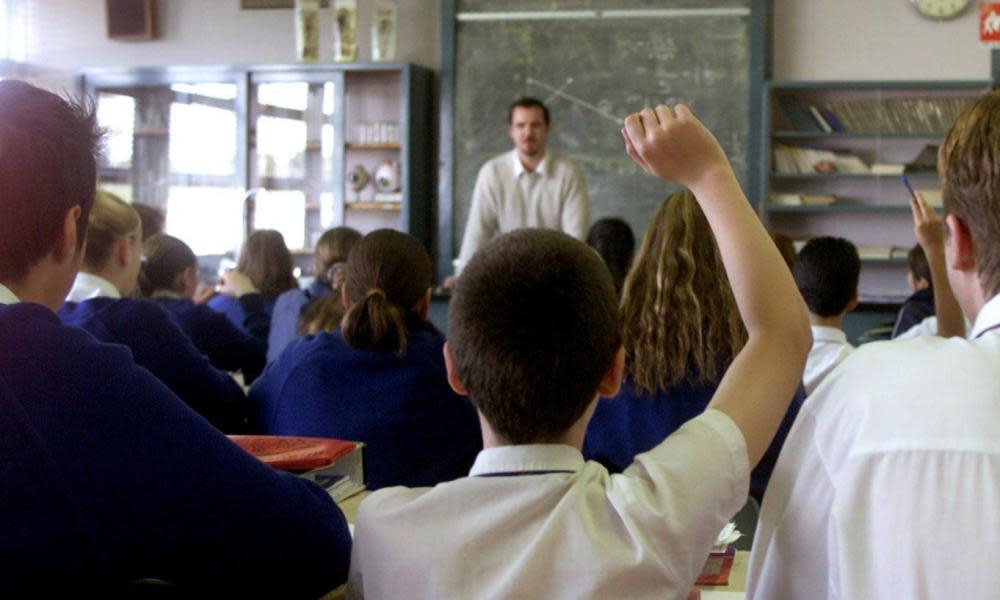Pisa report shows Australian teenagers' financial literacy has worsened since 2012

The financial literacy of Australian 15-year-olds has deteriorated significantly since 2012, according to the Organisation for Economic Cooperation and Development.
The organisation has warned a fifth of Australian 15-year-olds do not have basic financial literacy and the share of young people is increasing who do not have the financial literacy required to take part in society.
The OECD’s new report, Programme for International Student Assessment (Pisa) 2015 Results: Students’ Financial Literacy, was released on Wednesday evening.
It provides a picture of Australian students’ ability to apply their accumulated financial knowledge and skills to real-life situations involving financial issues and decisions.
It found 20% of 15-year-olds do not have basic financial literacy in Australia, meaning “they cannot even recognise the value of a simple budget or understand the relationship between how much a vehicle is used and the costs incurred”.
It also found a “significant deterioration” in financial literacy in Australia since 2012, with a growing share of students who do not have the financial literacy required to participate in society.
The OECD report comes as Labor continued its attack on the Coalition’s new school funding policy on Wednesday.
The shadow education minister, Tanya Plibersek, accused the Coalition during question time of stripping $22.3bn in funding from the school system that had been promised by the former Labor government.
But Malcolm Turnbull dismissed the attack, saying Labor’s promised funding was a fantasy and he was committed to delivering “national, needs-based, consistent” funding to the school system.
When he announced his revamped school funding plan, in the week before the budget, he said he would be redirecting money to the most needy schools to improve student performance.
The OECD’s report is its second Pisa report on the financial literacy of 15-year-olds.
It grades students on a single continuous scale of financial literacy, which is divided into five levels. Questions at level 1 are considered the easiest and questions at level 5 the hardest.
At best, students performing at level 1 can recognise the difference between needs and wants, can make simple decisions on everyday spending and can tell what an invoice is for.
Level 2 is considered the baseline level of proficiency in financial literacy that is required to participate in society.
Students performing at level 5 can look ahead to solve financial problems or make the kinds of financial decisions that will be only relevant to them in the future.
The report shows Australian students are performing above the OECD average for financial literacy but there has been “significant deterioration” since 2012.
It found the share of students who scored below “level 2” increased by 9 percentage points between 2012 and 2015.
It also found more than 70% of the variation in financial literacy performance in Australia is explained by performance in mathematics and reading.
Just 15% of students in Australia are performing at level 5, compared to participating Canadian provinces (22%), the Netherlands (18%) and the United States (10%).
“The results call for greater investments in financial literacy from a young age,” the report says of its global findings. “The data show far too many students around the world are failing to attain a baseline level of proficiency.
“Even in countries and economies that perform at or above the OECD average – including Australia, Italy, the Netherlands, Poland and the United States – at least one fifth of students perform below the baseline level of proficiency.”
The report found gender differences in financial literacy were mixed globally.
“Only in Italy do boys perform better than girls, while girls perform better than boys in Australia, Lithuania, Poland, the Slovak Republic and Spain,” the report says.

 Yahoo News
Yahoo News 
